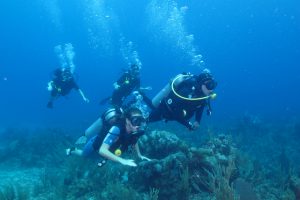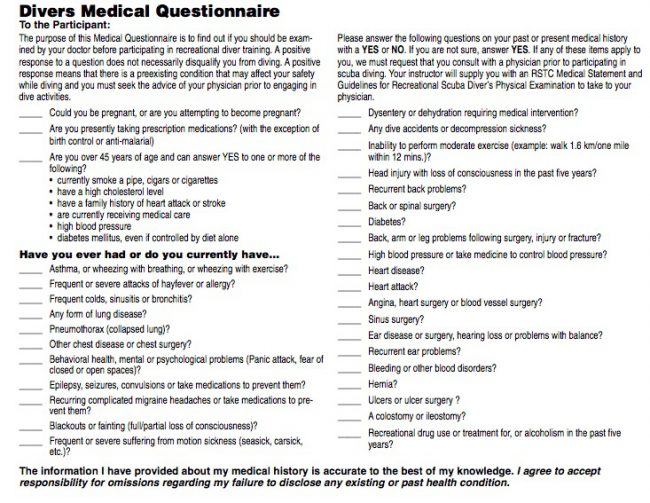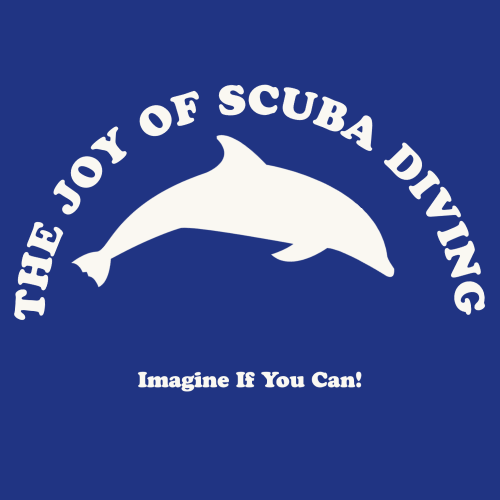 If you snorkel without a flotation and enjoy observing the amazing underwater flora and fauna from the surface, you’re already comfortable in the water. It’s always fun to be able to breathe thru your snorkel mouthpiece and have the clear visibility thru your snorkel mask to see the beautiful turtles, stingrays, sea snakes, eels and the breathtaking coral and sometimes you just can’t help but dip underwater for a brief moment.
If you snorkel without a flotation and enjoy observing the amazing underwater flora and fauna from the surface, you’re already comfortable in the water. It’s always fun to be able to breathe thru your snorkel mouthpiece and have the clear visibility thru your snorkel mask to see the beautiful turtles, stingrays, sea snakes, eels and the breathtaking coral and sometimes you just can’t help but dip underwater for a brief moment.
So you want to learn to scuba dive. I have 3 important skills for you to know about as a snorkeler if you want to get certified in scuba diving. You’re already a step ahead to do the Open Water Diver Certification because you already love to be in water but it won’t be a piece of cake and it will take some work which I know you can do. This article also has a great video for you to watch too!
The first thing you need to know is:
You Must Be Physically Fit

Anyone interested in enrolling in scuba dive lessons are required by accredited dive shops and dive resorts to fill out a scuba diver medical questionnaire statement. It will ask certain questions related to your respiratory and cardiovascular system for example, do you have any health conditions like asthma or heart conditions.
You might wonder why this Medical Statement is necessary. The form is designed to help you, your family physician and your professional dive instructor determine if you are physically fit enough to scuba dive.
Scuba diving is one of the most challenging physiological stresses on the human body. Not only does the diver have natural heat loss, an enormous amount of water pressure is exerted on the body and so the cardiorespiratory system must be able to handle both.
3 Important Scuba Dive Skills Snorkelers Should Know
To transition from being a snorkeler to becoming a certified scuba diver means:
1. Breathing comfortably underwater.
When you snorkel do you think of how you breathe? Do you have a normal breathing pattern when you’re snorkeling? Probably not, because if you decide to just go for a quick dip underwater your snorkel will be filled with water and as soon as you surface you still need to expel that water with a sharp exhalation and then you can take a breath. Even a wave can trickle some water into your snorkel causing you to choke unexpectedly and now you have quickly exhale to get that water out.
In your Open Water Diver Certification, you will spend time in confined water or in a pool where your professional dive instructor will get you familiar with all your dive gear such the BCD (Buoyancy Control Device) and the regulator.
In scuba diving, we have the Golden Rule of never holding your breath and so you will be taught how to relax and breathe slowly, deeply and continuously.
Having a ‘normal’ breathing underwater pattern not only helps you to maintain neutral buoyancy, you will conserve your air giving a longer time to enjoy all the beautiful sea creatures.
By the time you finish your Open Water Diver Certification, you should be breathing comfortably underwater.
2. Must be comfortable underwater without your mask on.
Occasionally, water may leak into your mask and you don’t want to surface all the time when you’re diving so the mask clearing skill is something you want to master well.
Ok, so if you’re freaking out now, stop and breathe because I know you can do this!
Scuba diving without your mask on and learning how to clear the mask underwater is actually a fun skill to learn. When you’re underwater, you will first start by flooding half your mask to get you to feel what it’s like to have water around your eyes and then you will learn to clear it. Next, when you’re ready you will do a full mask flood and clear the mask. You can even close your eyes for this if you like, although I suggest you have your eyes open.
Strangely, this seems to be one of the most challenging skills for student divers. You might wonder how you can breathe doing this procedure. Learning to breathe underwater is actually one of the first skills you will learn. When dive students struggle over the mask flooding and the clearing, it’s usually because they feel like they can’t breathe and It’s totally psychological because you really are breathing through the use of your scuba equipment.
3. Balancing your buoyancy underwater.
When you snorkel, your body is positioned on the surface of the water so you don’t need to worry about your buoyancy underwater.
When you’re underwater diving, you don’t want to sink and you don’t want to be too light that will cause you to rise. This skill of being neutrally buoyant is accomplished by the proper amount of weights, controlled breathing, and proper management of your BCD.
Sometimes you hear divers talk about how they feel like one with the ocean, they have already mastered their neutral buoyancy. They seem to gently and effortlessly glide through the water or hover motionless while observing a shy sea creature trying to hide from them.
Immerse Yourself Into The Deep Blue
Alright snorkelers, I know you can master these top skills and everything else after that will be easy peasy and you will have lots of fun and laughter with your instructor.
